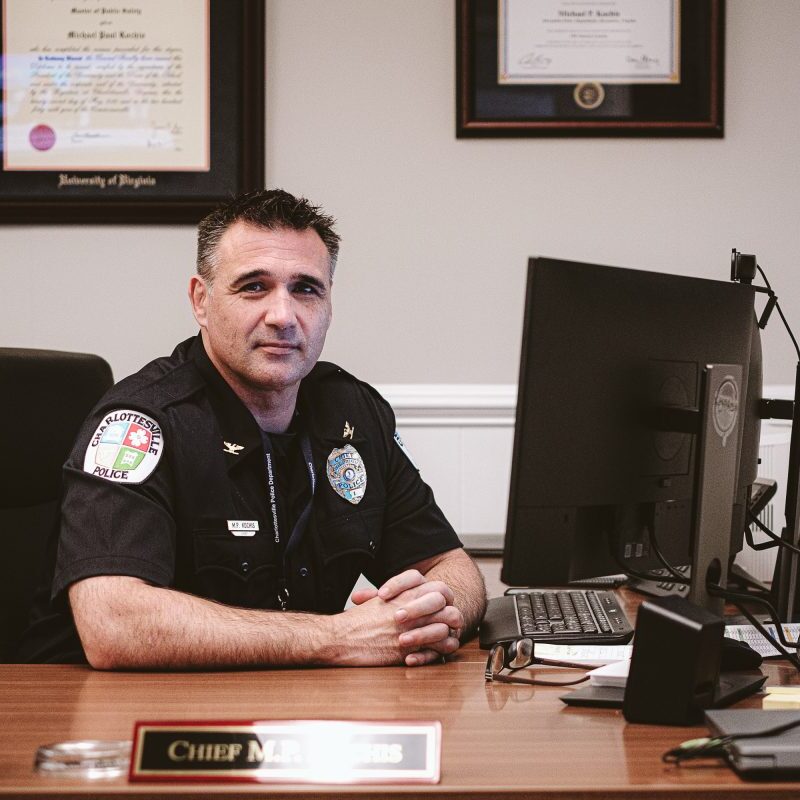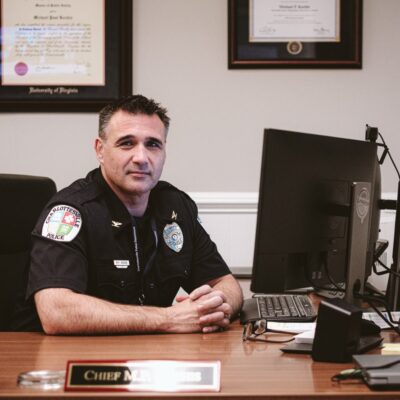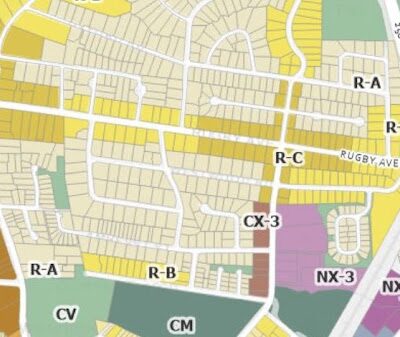 Albemarle Delegate Rob Bell says there seems to be a consensus that dating couples should have access to protective orders, regardless of marriage.
|
Following the death of Love in May, attention to protective order legislation intensified—particularly for individuals who are dating, but are not legally considered “family.” Huguely was arrested following Love’s death, and charged with first degree murder. However, there has been no evidence to suggest that Love, who had dated Huguely, sought a protective order against him.
Last month, the Virginia State Crime Commission met to discuss seven bills referred during the previous assembly session. On December 8, the commission resumes discussion of bills that could make protective orders available for unmarried couples and offer judges a chance to enforce them with Global Positioning Systems (GPS).
“We do have several matters being taken up by the crime commission with regards to protective orders,” says Delegate Rob Bell, R-Albemarle, who also serves as vice-chair of the commission. “Staff has come up with recommendations, but has not voted on them yet.” The General Assembly session opens January 12.
Senate Bill 208 would expand protective orders for “family abuse” to include individuals in a “substantive, intimate dating relationship”—a nebulous thing to define, although states like Arizona and Texas consider both the length and nature of the relationship.
For that matter, Senate Bill 208 makes no mention of sexual orientation, although one comparable bill does. The North Carolina General Statute on Domestic Violence, referenced in the Virginia Crime Commission’s report, explicitly defines a “personal relationship” as heterosexual. Without clarification, whether Senate Bill 208 could be read as extending protection to homosexual couples as well as heterosexual remains to be seen.
“There does seem to be a consensus that we should make it easier for people who are not family and household members, under the current definition, to get protective orders,” says Bell. “How we do that and how we put limitations on that is still one of the issues we’re discussing.”
According to a report presented to the commission, there are roughly 15,000 final protective orders at any given time in Virginia. (“Final” protective orders may last as long as two years, and may be renewed.) Last year, 15,000 final orders were issued for family abuse, and 400 for stalking. Kristin O’Connell, a crime analyst for the Charlottesville Police Department, says city law enforcement received 376 protective orders in 2009.
Family abuse orders outnumber those for stalking more than 35 to 1, and are easier to acquire. A protective order for stalking—defined as “conduct directed at another person with the intent to place…that other person in reasonable fear of death, criminal sexual assault, or bodily injury to that other person”—requires a criminal warrant.
The Crimes Commission also discussed House Bill 164, which would allow Virginia judges to require the respondent of a protective order to wear a Global Positioning System (GPS) device, akin to those used by the state Department of Corrections to monitor high-risk sex offenders. Another proposal, House Bill 656, would force the respondent to pay for the GPS device.
“The issue,” says Charlottesville Police Lieutenant Ronnie Roberts, “is what court the cases are going to.” Busy court dockets could grow busier, and there is no language in the proposed bills to specify who would monitor GPS signals. For the current fiscal year, the city’s budget for “Court and Support Services” is $1.05 million, a slight reduction from the previous year.
Roberts says the most important enforcement tool remains early notification.
“We’ve taken a step in the next direction to protect victims of domestic violence,” says Roberts. “The cases that really raise a red flag for me are the ones where the victim of the case never calls.”





